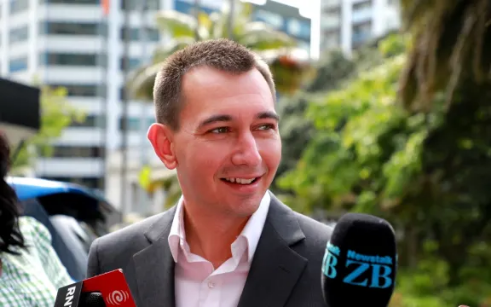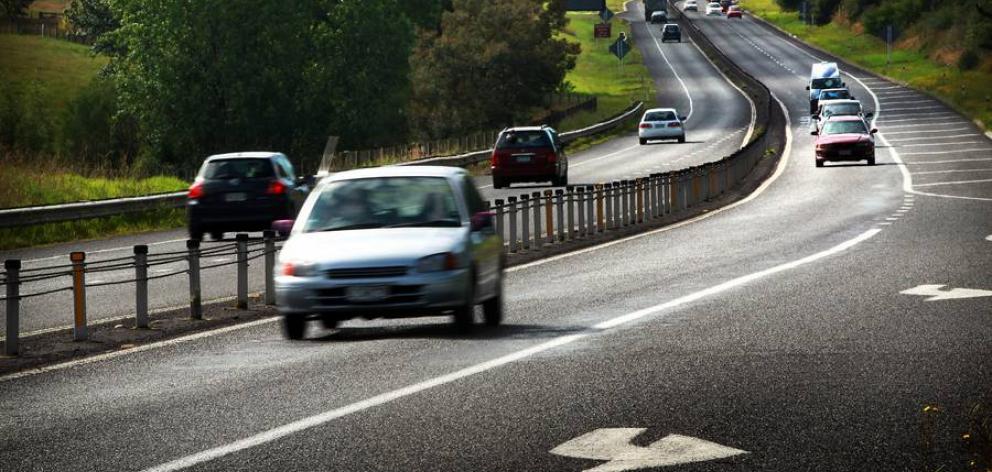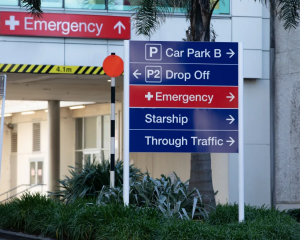
He will scrap Labour’s proposed gradual hike of 12 cents a litre increase to fuel taxes over the current term and delay that until the first year of the next term of Parliament, when fuel taxes will rise by 12 cents in one go.
The hikes don’t stop there. After the hike in January 2027, fuel taxes will increase by 6 cents a litre in 2028 and four cents a litre each year after that, meaning by the end of the next term, the government will have raised fuel taxes by 22 cents a litre.
These increases will be accompanied by an equivalent hike in road user charges.
Vehicle registrations will also jump by $50.
Brown announced the increases as he released a draft version Government Policy Statement on Land Transport, which is essentially a transport budget, setting out how much the government wants to raise from road users in fuel taxes and road user charges, and where it would like that money to be spent.
The draft will go out for consultation before taking effect on July 1 and take effect for the next six years, or until it is renewed, which will probably happen in three years time.
The two centrepieces of the plan are a greater focus on road maintenance with a pothole repair fund and restarting the last National government’s Roads of National Significance (RoNS) programme, with 15 new roads set to be delivered under the programme.
Brown said the RoNs were “some of New Zealand’s most successful state highway corridors, reducing congestion and improving safety”.
The draft GPS did not put a dollar figure on the new roads. NZTA costings obtained by The New Zealand Herald showed the roads could cost twice as much as National had budgeted them during the election, leaving the party $24 billion short.
The GPS tells NZTA how much money should be spent in different areas of the transport system, called “activity classes”.
Brown has created two new activity classes for pothole prevention. One class will spend up to $2.3b of pothole maintenance for government-owned state highways, the other class will spend up to $2.5b on fixing potholes on council-owned local roads.

The plan has seen some big cuts from when Labour was in charge. Labour also published a draft GPS for the same period. National has killed funding for inter-regional rail, which could mean an end to the Te Huia train line.
It has also axed funding for coastal shipping, which had been given up to $20 million a year. This funding was to encourage people to ship freight by water, rather than putting it on trucks. Labour reasoned that this would take pressure off the roading network by having fewer trucks.
Funding for public transport has been cut dramatically. Labour planned to spend up to $3.2b on public transport infrastructure over the next three years. This has been slashed by nearly $1b.
The funding pot for council subsidies to public transport services has also been cut, which could mean councils being forced to hike fares. Labour had promised up to $2.8b in subsidies over the next three years. The new Government has cut this to $2.3b.
Brown said the last Government increased public transport funding by 71 percent in five years, despite patronage declining by 23 percent - although he conceded some of this was due to the pandemic.
He said the “private share” of funding for public transport had fallen from 32 percent to 11 percent in the same time.
Funding for walking and cycling improvements has nearly been halved from $1b under Labour to $510m under this plan.
Brown indicated further work will be done to fix the broken transport revenue system which has seen revenue raised from fuel taxes dwindle.
This work was begun under the last National government and was significantly accelerated under the last Labour government. The changes will probably mean an end to fuel taxes which would be replaced by a universal road user charge.
Speaking to media at his post-Cabinet press conference this afternoon, Prime Minister Christopher Luxon said the draft Government Policy Statement on land transport invested more than $20 billion over three years. The key part of the GPS was the 15 Roads of National Significance programme, as well billions committed to addressing potholes.
Luxon said increasing road maintenance was crucial for his government, saying many Kiwis had experienced the poor quality of some roads.
On safety, Luxon talked about the low number of people who thought they would get caught drink-driving. He said that attitude was “frankly unacceptable” and needed to change. Investments would be made in enhancing breath-testing stops.
Luxon said the reality was the government needed revenue to have a strong roading network and therefore, increases to vehicle registration and fuel taxes were required.
Luxon said road user charges would be something the government wanted to get to in the future.
Asked how increases to registration would ease the cost of living which was another government priority, Luxon spoke of how the Auckland regional fuel tax was scrapped before talking about general moves to improve the economy.
Luxon said he had tried to find the balance by implementing $50 increase over time in two $25 instalments.
Luxon reiterated his commitment not to increase fuel taxes this term but said a 12 percent increase was planned during the second term once inflation was below 3 percent.
He didn’t believe a staggered increase this term - like Labour had proposed - was the right approach, saying interest rates would be lower after 2026 and the cost of living will have eased, meaning low-income families had a better ability to absorb an increase in fuel prices.
Brown said it was not only national roads but some local routes which would receive upgrades through the government’s focus on roads.
The upgrades of roads would be paid for through a number of measures including tolls, private-public partnerships and value capture tools such as congestion charging.
Brown said the government intended to hold police to account on improving safety outcomes on our roads.
He said he would not continue Labour’s “blanket approach” to reducing speed limits.
Brown said there would be targeted safety interventions where needed.
RUCs wouldn’t change this term.
“Our message to motorists is that they will benefit from this revenue,” Brown said, saying registration was a “one-off fee”.
All vehicles would be moved to some kind of road user charge based on the type of vehicle they drove, Brown said.
On the public-private partnerships, Brown said NZTA would be assessing the projects and go to the market to look for private sector investment.
Brown would like to see as many of the projects done through PPPs as possible.
He said the GPS prioritised rail funding in areas like Auckland and Wellington.
Brown said he had spoken with Auckland mayor Wayne Brown many times in recent weeks and outlined his priorities.
Both Luxon and Brown rejected the suggestion National’s transport plan had a $24b hole in it, as reported by the Herald recently. Brown said there was a range of estimates on the costs of the roads of national significance.
“We can not keep doing things the way we’ve been doing it,” Luxon said, when saying he made no apologies using “innovative” funding tools to improve infrastructure.
The PM also hinted the Government would make an announcement on fast track consenting this week.












